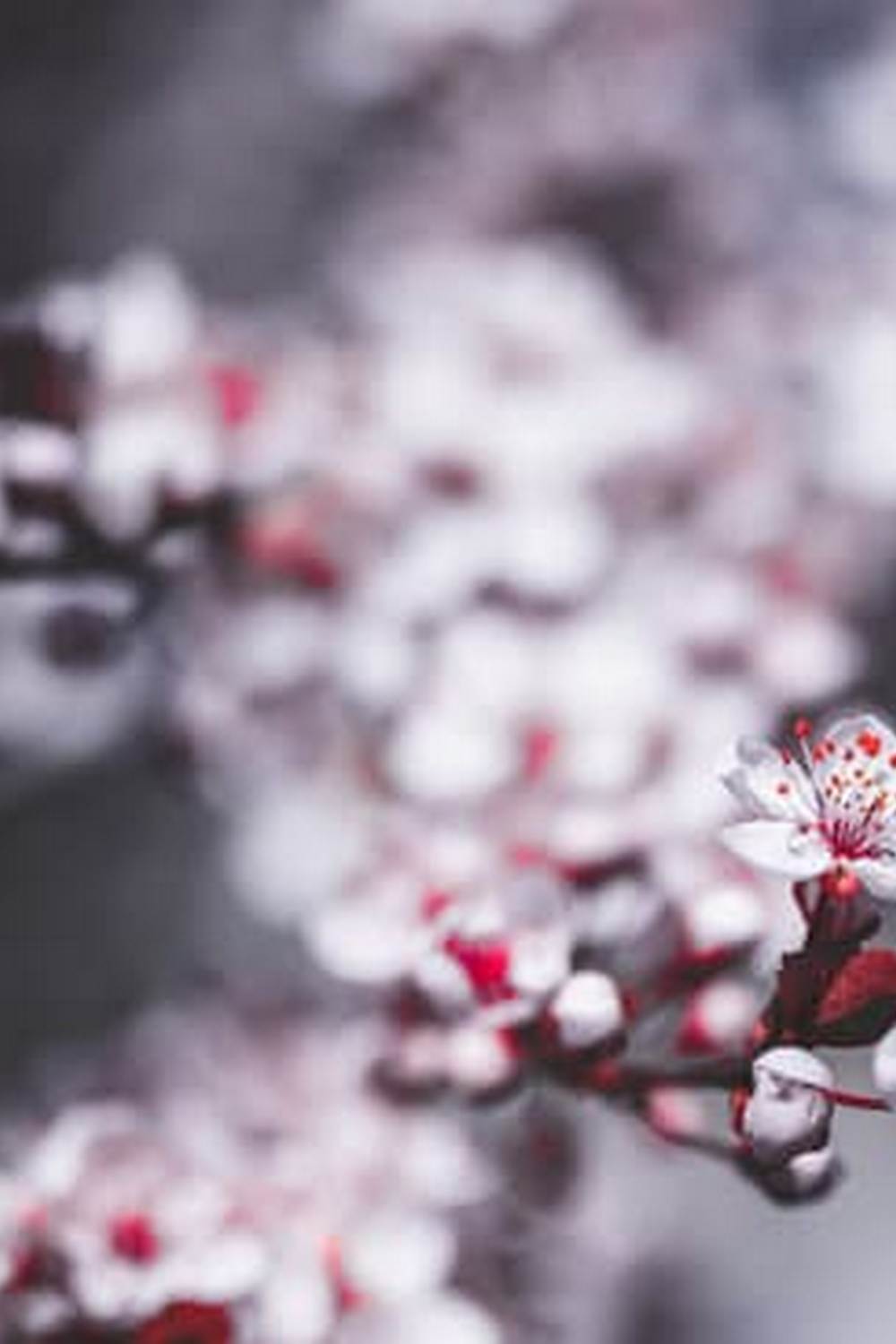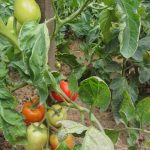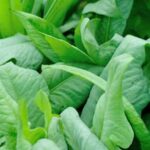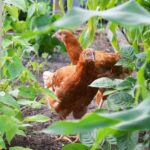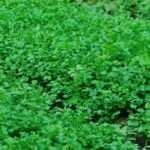Organic gardening has gained popularity in recent years as people become more aware of the harmful effects of synthetic chemicals on their health and the environment. One essential aspect of organic gardening is using natural fertilizers that enrich the soil and promote the growth and productivity of plants. In this article, we will explore the benefits of using organic fertilizers in vegetable gardens, with a particular focus on horse manure.
The use of organic fertilizers offers numerous advantages over synthetic alternatives. Organic fertilizers, such as horse manure, are rich in essential nutrients like nitrogen, phosphorus, and potassium. These nutrients help nourish plants, allowing them to develop strong roots, healthy foliage, abundant flowers, and bountiful harvests. Unlike synthetic fertilizers that provide only specific nutrients, organic fertilizers also contain other micronutrients and trace elements that contribute to overall plant health.
Horse manure specifically is highly recommended for vegetable gardens due to its nutrient-rich composition. It contains a balanced ratio of nitrogen to phosphorus to potassium (NPK), making it an ideal fertilizer for promoting vigorous plant growth. Additionally, horse manure helps increase soil fertility by improving its structure and water-holding capacity. By adding horse manure to your vegetable garden, you can enhance soil quality while reducing the reliance on chemical-based products.
By incorporating organic fertilizers like horse manure into your vegetable garden maintenance routine, you can reap numerous benefits for yourself and the environment. Not only will you be supporting sustainable practices, but you will also produce healthier crops for consumption. In the following sections of this article, we will delve deeper into understanding the composition of horse manure and explore its advantages over synthetic fertilizers.
Understanding the Composition of Horse Manure
Horse manure is an excellent source of nutrients and organic matter for vegetable gardens. Understanding its composition is crucial in evaluating its effectiveness as a fertilizer. Horse manure typically consists of a combination of feces, urine, hay, and straw used for bedding. This mixture results in a nutrient-rich composition that provides numerous benefits to plants.
- Nutrient Content: Horse manure is rich in essential nutrients that promote healthy plant growth. It contains significant amounts of nitrogen (N), phosphorus (P), and potassium (K). Nitrogen supports leafy green growth and overall plant development. Phosphorus aids in root development, flowering, and fruiting. Potassium promotes disease resistance and enhances the overall health of plants.
- Organic Matter: In addition to essential nutrients, horse manure also provides a generous amount of organic matter to the soil. Organic matter improves soil structure by enhancing water retention and drainage capabilities. It increases the soil’s ability to hold onto nutrients, making them more accessible to plants’ roots. Furthermore, organic matter enhances microbial activity in the soil, fostering a diverse and healthy soil ecosystem.
- Micronutrients: Apart from the primary macronutrients mentioned above, horse manure also contains various micronutrients necessary for plant health but required in smaller quantities. These micronutrients include calcium, magnesium, iron, zinc, copper, manganese, and boron. While these elements are present in low concentrations in horse manure compared to macronutrients like nitrogen or phosphorus, they still contribute significantly to overall plant nutrition.
Including horse manure in your vegetable garden ensures that your plants receive a well-rounded supply of nutrients while enrichening the soil with organic matter. With its nutrient content and sustainability benefits over synthetic fertilizers discussed in the previous section, it becomes clear why horse manure is highly recommended for vegetable gardens seeking natural methods of fertilization.
To fully understand when and how to use horse manure as fertilizer in your vegetable garden, it is important to explore the benefits and considerations of its application. This will be discussed in detail in the next section.
The Benefits of Using Horse Manure as Fertilizer
Horse manure has long been recognized as an excellent organic fertilizer for vegetable gardens due to its numerous benefits and advantages over synthetic fertilizers. Understanding these benefits can help gardeners make informed choices about their fertilizer options and maximize the productivity of their vegetable crops.
Nutrient-rich Composition
One of the primary reasons why horse manure is highly recommended for vegetable gardens is its rich nutrient composition. Horse manure contains a balanced ratio of essential nutrients such as nitrogen (N), phosphorus (P), and potassium (K), also known as NPK. These nutrients are vital for healthy plant growth, root development, and the production of fruits or vegetables.
Additionally, horse manure is an excellent source of other essential elements like calcium, magnesium, and sulfur. These micronutrients are necessary for various plant functions such as enzyme activity, chlorophyll synthesis, and disease resistance. By incorporating horse manure into the soil, gardeners can provide their vegetable crops with a wide range of essential nutrients in a natural and sustainable way.
Improves Soil Structure and Fertility
Apart from its nutrient content, horse manure also plays a significant role in improving soil structure and fertility. The organic matter found in horse manure acts as a soil conditioner that can enhance the soil’s water-holding capacity, drainage, and aeration. This improved soil structure creates an optimal environment for plant roots to access oxygen, absorb nutrients efficiently, and establish robust systems.
Furthermore, when horse manure is added to the soil, it enhances microbial activity by providing food sources for beneficial organisms like earthworms and bacteria. These microorganisms play critical roles in breaking down organic matter into simpler forms accessible to plants while improving nutrient availability. As a result, using horse manure as fertilizer can contribute to building healthy soil with better fertility potential over time.
Environmentally Friendly Option
Using horse manure as fertilizer aligns with sustainable and eco-friendly gardening practices. Unlike synthetic fertilizers, which can be manufactured using fossil fuels and contribute to environmental pollution during production and application, horse manure is a natural byproduct obtained from animals. It is a form of recycling that allows gardeners to repurpose waste material into valuable resources.
Additionally, horse manure promotes organic matter recycling in the soil. As it decomposes, it returns nutrients back to the soil, reduces the need for chemical inputs, and supports the long-term health and sustainability of the ecosystem. By choosing horse manure as a fertilizer option in vegetable gardens, gardeners can contribute to minimizing their environmental footprint while reaping the benefits of bountiful harvests.
Preparing and Collecting Horse Manure
Preparing and collecting horse manure is a crucial step in utilizing it as fertilizer for vegetable gardens. Proper collection and preparation techniques ensure that the manure is safe to use and provides optimum nutrients for plant growth. Additionally, composting horse manure can further enhance its benefits and reduce any risk of pathogens or weed seeds.
1. Collecting Horse Manure:
To start, identify a reliable source of horse manure, such as local stables or farms. Make sure the horses are healthy and avoid collecting manure from sick or medicated animals as it may contain harmful substances. Obtain permission from the owner before collecting.
When collecting horse manure, it’s important to gather both fresh manure and bedding material (such as straw or wood shavings) in order to create a well-balanced compost mixture. The bedding material helps absorb moisture and provides carbon-rich materials for the composting process.
2. Composting Techniques:
Composting horse manure allows for decomposition to take place, resulting in a nutrient-rich material that is safe to use as fertilizer. Here are step-by-step instructions for composting horse manure:
- Start by creating a designated area or bin for composting. It should be well-ventilated and large enough to accommodate the amount of manure collected.
- Layer fresh manure with bedding material in a 2:1 ratio (two parts manure to one part bedding).
- Moisten the mixture lightly with water, making sure it is damp but not soaking wet.
- Turn the compost regularly to promote air circulation and speed up decomposition.
- Maintain proper moisture levels by watering when needed – the compost should be moist like a squeezed sponge.
- Compost piles should reach temperatures between 120°F (49°C) and 160°F (71°C) to kill any potential pathogens or weed seeds.
- Allow the compost pile to decompose for at least six months before using it as fertilizer in your vegetable gardens.
During the composting process, monitor the temperature and moisture levels to ensure optimal conditions for decomposition. This will help create a nutrient-rich compost that promotes healthy plant growth and minimizes any risks associated with pathogens or weed seeds.
Applying Horse Manure Fertilizer
Determining the Right Time to Apply Horse Manure
Timing is crucial when it comes to applying horse manure fertilizer to vegetable crops. The best time to apply horse manure is in the fall or early spring, before planting season begins. This allows the manure ample time to decompose and release its nutrients into the soil. Applying horse manure during active growth periods can lead to nutrient imbalances and burn delicate plant roots.
Applying Horse Manure to Different Types of Vegetable Crops
The method of applying horse manure can vary depending on the type of vegetable crop being grown. For root crops such as carrots or radishes, it is recommended to mix a layer of well-rotted horse manure into the top 6 inches of soil before planting. This ensures that the roots have access to the rich nutrients while preventing direct contact that may cause scorching.
For leafy greens like lettuce or spinach, it is best to side-dress with horse manure by lightly scattering a thin layer around the base of each plant. Avoid getting the manure on the leaves as this could promote pest infestation or disease transmission.
For fruiting vegetables such as tomatoes or peppers, apply well-composted horse manure in a shallow trench dug around each plant about a month before they start setting fruit. Gently cover the manure with soil, taking care not to bury the stem.
Optimizing Results through Proper Application Technique
To ensure optimal results when applying horse manure as fertilizer, consider the following techniques:
- Adequate Quantity: Use an appropriate amount of horse manure based on your specific vegetable crop’s needs and soil conditions. A general guideline is 20-30 pounds per 100 square feet but adjust accordingly after conducting a soil test.
- Even Distribution: Spread the horse manure evenly across the soil to avoid nutrient concentration in one area. A garden fork or rake can help with the distribution process.
- Mixing and Incorporating: For surface-applied horse manure, gently incorporate it into the top few inches of soil to prevent runoff and maximize nutrient uptake by plant roots.
- Watering: After applying horse manure, thoroughly water the garden bed to ensure proper leaching of nutrients into the soil. This also helps prevent any potential burning of plant roots from concentrated nutrients.
By following these guidelines for applying horse manure fertilizer, vegetable gardeners can maintain a healthy balance of nutrients in their crops while ensuring optimal growth and productivity.
Potential Risks and Precautions
Using horse manure as fertilizer in vegetable gardens offers many benefits, but it is important to be aware of potential risks and take necessary precautions. One of the main concerns with using any type of manure as fertilizer is the presence of pathogens that can cause diseases in humans or contaminate crops.
Additionally, weed seeds may also be present in horse manure, which can lead to unwanted weed growth in the garden. However, there are methods to minimize these risks and ensure safe use of horse manure as a fertilizer.
One effective method to reduce the risk of pathogens is through composting the horse manure before applying it to the garden. Composting is a natural process that involves breaking down organic materials through decomposition, resulting in nutrient-rich compost. This process helps eliminate potential harmful bacteria or parasites present in fresh manure. To properly compost horse manure, follow these steps:
- Collect the horse manure: Gather fresh horse manure from a reliable source and avoid any material mixed with bedding material such as straw or shavings.
- Create a compost pile: Choose an appropriate location for your compost pile and create alternating layers of horse manure and other organic materials such as leaves, grass clippings, or kitchen scraps.
- Monitor moisture levels: Keep the compost pile moist but not saturated by watering it regularly.
- Turn the pile: Turn the compost pile every few weeks with a pitchfork or shovel to facilitate proper decomposition and aerate the materials.
- Wait for maturity: Allow the compost pile to decompose fully over several months until it reaches a dark brown, crumbly texture without any recognizable pieces of organic matter.
Another precautionary measure is to ensure that horses providing the manure have been dewormed regularly and are free from contagious diseases. It is essential to communicate with your source about their animal health practices and confirm their adherence to proper veterinary care.
Furthermore, it is crucial to monitor weed growth in the vegetable garden after applying horse manure fertilizer. While composting helps reduce weed seeds, it may not eliminate all of them. Regular weeding and implementing mulching techniques can help minimize weed competition with your vegetable crops.
By following these precautions and practicing proper hygiene, the benefits of using horse manure as fertilizer can be enjoyed without significant risks. It is important to note that while this section has addressed potential concerns, when used correctly, horse manure offers numerous advantages for promoting healthy and productive vegetable gardens.
Complementary Organic Techniques
In addition to using horse manure as a fertilizer in vegetable gardens, there are several complementary organic techniques that can greatly enhance the health and productivity of your plants. Two popular methods include crop rotation and companion planting.
Crop rotation is the practice of growing different crops in different areas of your garden each year. This technique helps prevent the buildup of pests and diseases that can affect specific plant families. By rotating crops, you can break pest cycles and improve soil fertility. When using horse manure, crop rotation becomes even more effective as it helps distribute nutrients throughout the garden more evenly.
Companion planting involves strategically placing plants together based on their beneficial relationships. Some plants have natural pest-repellent properties or attract beneficial insects, while others help fix nitrogen in the soil or provide shade for more delicate plants. When combining companion planting with horse manure fertilization, you create an optimal environment for your vegetables to thrive.
| Vegetable | Companion Plants |
|---|---|
| Tomatoes | Basil, marigold |
| Cucumbers | Nasturtiums, radishes |
| Carrots | Lettuce, onions |
By incorporating both horse manure fertilization and these complementary organic techniques into your vegetable garden, you can promote a balanced ecosystem that supports healthy and productive plants.
Success Stories and Testimonials
Throughout the years, many experienced gardeners have attested to the effectiveness of using horse manure as fertilizer in vegetable gardens. Their success stories and testimonials serve as valuable inspiration and motivation for those seeking to incorporate organic practices into their gardening routines.
One such success story comes from Sarah Thompson, a seasoned gardener who has been using horse manure in her vegetable garden for over a decade. According to Sarah, horse manure has significantly improved the overall health and productivity of her crops.
She explains that the high levels of nitrogen in horse manure have greatly enhanced plant growth, resulting in larger and more abundant harvests. Additionally, she credits the organic matter present in horse manure for improving soil structure and drainage, ultimately leading to healthier plants with stronger root systems.
Another gardener who swears by the benefits of horse manure is Mark Johnson. Mark has been practicing sustainable agriculture for several years and believes that horse manure has played a crucial role in his success.
He highlights how horse manure contains a balanced combination of essential nutrients like phosphorus, potassium, and trace minerals that are readily available to plants. Mark asserts that this natural form of fertilization not only promotes vigorous growth but also enhances the flavor and nutritional value of his homegrown vegetables.
These success stories serve as evidence that incorporating horse manure into vegetable gardens can yield remarkable results. However, it’s important for new gardeners to remember that every garden is unique, and results may vary depending on factors such as soil composition, climate conditions, and specific crop requirements. It’s always advisable to experiment with small quantities of horse manure initially to gauge its effects on your particular garden before fully committing to its use as a primary fertilizer source.
By learning from these experienced gardeners and their testimonials, aspiring organic gardeners can gain confidence in harnessing the power of horse manure as a natural fertilizer for their own vegetable gardens.
Frequently Asked Questions
As the use of horse manure as a fertilizer in vegetable gardens becomes increasingly popular, it is important for beginner gardeners to have a clear understanding of how to use it effectively. Here are some frequently asked questions about using horse manure as fertilizer and detailed answers to help you make informed decisions:
- Is horse manure safe to use in vegetable gardens?
- How much horse manure should I apply?
- Can I use horse manure from stables that use straw bedding?
- How long does it take for horse manure to break down?
Horse manure can be used safely in vegetable gardens, but certain precautions should be taken. It is essential to compost the manure properly before using it as fertilizer to eliminate any potential pathogens or weed seeds.
Composting at temperatures above 140°F (60°C) for several months will ensure that harmful organisms are killed off. Additionally, avoid using fresh horse manure on edible crops that are meant to be consumed raw, as they may come into direct contact with any remaining pathogens.
The amount of horse manure needed depends on your soil’s fertility and the specific nutrient requirements of your vegetable crops. As a general guideline, spread a layer of composted horse manure about 1-2 inches thick over your garden soil before planting. You can also mix the manure into the top few inches of soil during preparation. Conducting a soil test can provide precise information about your soil’s existing nutrients and help determine if additional amendments are necessary.
Yes, you can definitely use horse manure from stables that utilize straw bedding. In fact, straw-based bedding often produces excellent quality compost due to its carbon-rich nature. The high carbon content in straw helps maintain optimal moisture levels during composting and creates an ideal environment for beneficial microorganisms to thrive.
The time it takes for horse manure to break down and become suitable fertilizer depends on several factors, such as the composting method, weather conditions, and the type of bedding used. In general, properly managed composting can take anywhere from a few months to a year. Regularly turning the compost pile, maintaining moisture levels, and ensuring proper aeration will expedite the decomposition process.
By addressing these common concerns surrounding the use of horse manure as fertilizer in vegetable gardens, beginners can make informed decisions and maximize the benefits of this organic option. Remember to always follow proper composting techniques and monitor your soil’s nutrient levels to ensure healthy plant growth and abundant harvests.
Conclusion
In conclusion, utilizing horse manure as a natural and eco-friendly fertilizer option for vegetable gardens offers numerous advantages. The composition of horse manure, with its rich nutrients and organic matter, provides essential elements needed for healthy plant growth. This organic fertilizer is highly recommended over synthetic alternatives due to its ability to enhance soil fertility and improve long-term soil health.
By following the proper collection and preparation techniques outlined in this article, gardeners can incorporate horse manure into their gardening practices. Timing and application methods are crucial for optimal results, and the detailed guidance provided here ensures that gardeners can make the most out of this valuable resource.
While potential risks and precautions should be considered when using horse manure as fertilizer, implementing methods to minimize pathogens or weed seeds can significantly reduce any potential concerns. Additionally, combining other organic gardening techniques, such as crop rotation or companion planting, can further enhance the health and productivity of vegetable gardens.
Success stories from experienced gardeners showcase the positive impact of utilizing horse manure as a natural fertilizer option. Real-life examples highlight how this practice has resulted in thriving vegetable gardens with increased yields and improved plant vitality.
For beginners embarking on their gardening journey, addressing frequently asked questions about using horse manure as fertilizer is essential. By providing detailed answers and informative guidance, this article aims to empower novice gardeners with the knowledge they need to make informed decisions about incorporating horse manure into their gardening practices.
In summary, utilizing horse manure as a natural and eco-friendly fertilizer in vegetable gardens offers a host of advantages. From its nutrient-rich composition to its ability to enhance soil fertility and support long-term soil health, horse manure proves to be an invaluable resource for gardeners seeking sustainable ways to nurture their plants.
By adhering to proper collection, preparation, timing, and application techniques while considering potential risks alongside complementary organic techniques, gardeners can successfully harness the benefits of using horse manure as a fertilizer option in their vegetable gardens.
Frequently Asked Questions
What vegetables do not like horse manure?
Certain vegetables do not thrive with horse manure in the garden. Asparagus, carrots, and other root crops tend to have issues with excessive nitrogen content found in fresh horse manure.
This type of vegetable prefers a more balanced nutrient composition to develop proper root growth and avoid becoming overly lush, which attracts pests and diseases. Therefore, it is advisable to use well-rotted or composted horse manure for these specific plants.
How long does horse manure need to sit before using in garden?
The length of time required for horse manure to sit before using it in the garden depends on various factors. Fresh horse manure should generally be aged or composted for at least six months before being applied directly onto plants or around sensitive vegetable roots.
Composting allows for the natural decomposition of organic matter and horse manure, resulting in a stable, nutrient-rich material that is beneficial to plants while minimizing the risk of burning or damaging them.
Can you put too much horse manure in your garden?
While horse manure can be highly beneficial for improving soil fertility, it is possible to overdo it in your garden. Adding an excessive amount of horse manure can lead to imbalances in the soil’s nutrient levels, especially nitrogen. Applying too much fresh or uncomposted horse manure may result in nitrogen burn, where plants suffer from leaf scorching due to an overload of nutrients.
It is essential to consider the specific needs of your plants and their tolerance before applying large quantities of horse manure. Maintaining a balance by incorporating other organic matter and adequately composting the horse manure helps ensure healthy plant growth without overwhelming them with excessive nutrients.

If you’re looking to get into vegetable gardening, or are just looking for some tips on how to make your current garden better, then you’ve come to the right place! My name is Ethel and I have been gardening for years. In this blog, I’m going to share with you some of my best tips on how to create a successful vegetable garden.

